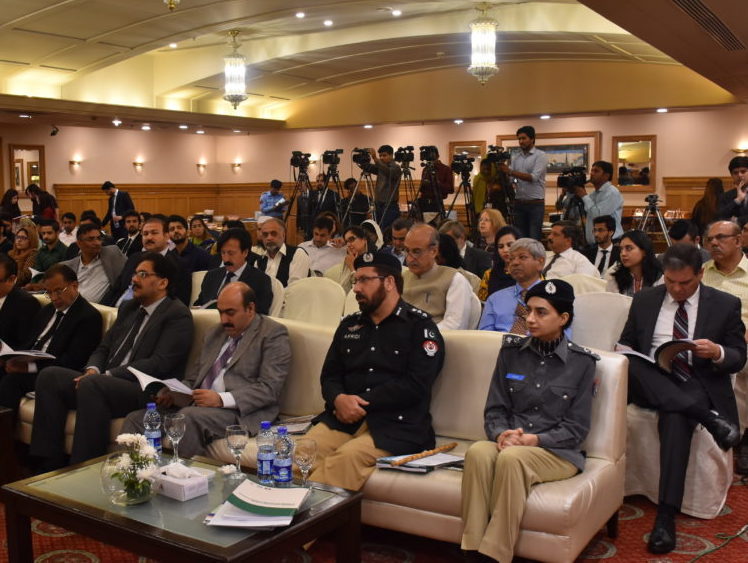Addressing Prison Overcrowding in Pakistan

Prison overcrowding is a global concern. Around 10.3 million persons, i.e., 144 out of every 100,000, were in prisons worldwide in October 2015. Of the 205 countries in the world, almost 119 have prison overcrowding. According to UNODC’s Handbook on Overcrowding, Prison overcrowding affects not only the requirements of adequate space for the prisoners but also their health, hygiene, nutrition, access to available resources, right to be kept in segregation from certain other prisoners (such as, juveniles, high security prisoners, mentally ill persons, etc.), as well as their safety and security. Prison overcrowding has serious consequences for the inmates and puts them in highly uncomfortable situations.
Pakistan’s occupancy rate in prisons on October 1, 2017, was 157 percent with 84,287 inmates in 112 prisons administered by provinces/Administrative Territories (ATs), while the authorized capacity was 53,744. Moreover, 66 percent of the total number of inmates in Pakistani prisons were still undergoing trial on the said date. This is high considering that the average rate of under-trial detention all around the world is less than 25 percent. This indicates serious problems in the criminal justice system causing delays in the dispensation of cases and, resultantly, creating a burden on the prison population. While some provincial governments in Pakistan (responsible for prison administration) have completed or are in the process of constructing new prisons, it would be a matter of time when those new prisons might also get overcrowded, if its main causes remain unaddressed; a major one being the high number of under-trial prisoners (UTPs). Therefore, the shortcomings of the criminal justice system, especially with regard to the processing and adjudication of cases, which is leading to high prevalence of under-trial detention, need to be analyzed.
Therefore, CODE PAKISTAN, at the request of NACTA in February 2017, undertook the task of identifying the causes and consequences of high numbers of UTPs leading to prison overcrowding in Pakistan and coming up with a thorough assessment of the criminal justice system with regard to delays in the processing and adjudication of cases. In order to undertake the study, CODE PAKISTAN devised a research plan including data gathering and literature review, as well as face-to-face interactions with criminal justice officials from the fields of the police, prosecution, prisons, judiciary, and the lawyers.
CODE PAKISTAN conducted an extensive review of relevant laws, the available literature on the subject, including published national and international reports, and articles published in newspapers, periodicals, and research journals. Besides secondary research based on published literature, CODE PAKISTAN held meetings with the relevant officials of the provincial governments of Balochistan, Khyber Pakhtunkhwa (KP), Punjab, and Sindh in Quetta, Peshawar, Lahore, and Karachi, respectively. After conducting the initial round of meetings with relevant provincial government officials, CODE PAKISTAN, in collaboration with NACTA, held a national-level consultation with criminal justice officials in Islamabad. The consultation was followed by two rounds of consultations with the judges. The first round was held with the judges of KP at the KP Judicial Academy, while the second national judicial consultation was held in collaboration with NACTA in Islamabad. CODE PAKISTAN has held consultations with the lawyers of the Islamabad Bar Council, Balochistan Bar Council, KP Bar Council, Punjab Bar Council, and Sindh Bar Council. CODE PAKISTAN has also collected data from relevant government institutions with the help of NACTA and has held two separate consultations with relevant provincial government officials with respect to the data in Islamabad with the support of NACTA.
In the final stages of the drafting of the report, it was presented before a group of subject matter experts in a consultation held in Islamabad. Finally, the draft report was presented once again before senior-level government officials in a consultation held at the office of NACTA in Islamabad. The findings of the study were presented to NACTA at the end of April 2018 and the Report on Addressing Overcrowding in Prisons by Reducing Pre-Conviction Detention in Pakistan was formally launched on May 8, 2018, at an event jointly organized by CODE PAKISTAN, NACTA, and the ICRC in Islamabad.
